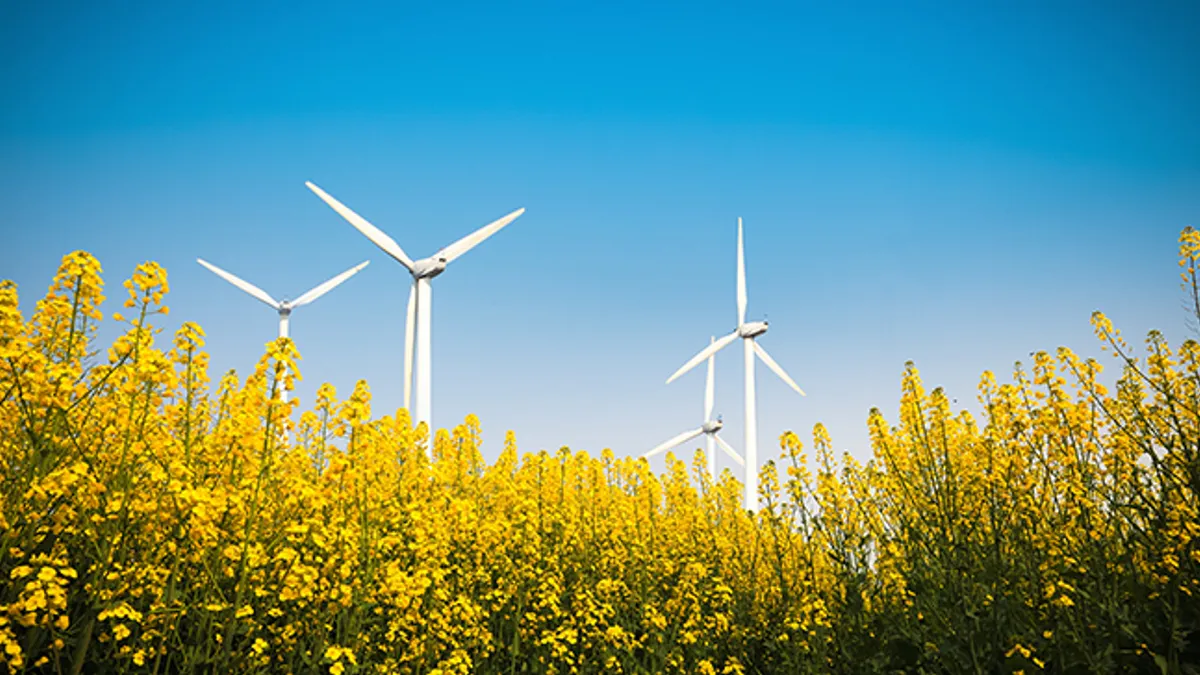At 3Degrees, we work with a wide variety of organizations, including large corporates and utilities, to help them meet their renewable energy goals. So over the past few highly challenging months, we've had many conversations with leaders from both sectors on how to best approach their current and future renewable energy needs in the face of COVID-19. With visibility into these strategic trends, we see a unique opportunity for utilities to design and deliver renewable solutions that drive even more value for their largest customers.
COVID-19's impact on C&I renewable energy strategies
For corporations, municipalities, and other large energy users, renewable energy purchasing is driven by long-term carbon reduction goals and years-long strategies for achieving those goals. As we assess the market today, there is good news: despite the sharp economic downturn that COVID-19 has ushered in, we haven’t seen any organizations step back from their long-term sustainability goals. It is encouraging to see that organizations are continuing to pursue these goals, especially those that have made public commitments such as signing on to RE100 or setting a Science Based Target.
While long-term renewable energy goals remain intact, every company is being impacted by economic uncertainty. Many companies are taking a second look at their near-term strategies for procuring renewable energy, looking to manage cash flow risk in the face of a potentially slow economic recovery. And utilities are well-positioned to help meet these evolving needs.
Utility solutions designed to serve large customers' renewable energy needs
A key opportunity for today's future-focused utility lies in offering renewable energy solutions to their larger customers that deliver on needs for lower risk and meaningful impact, while also passing regulatory muster. This is a challenge, but it's a challenge worth undertaking, as demonstrated by utilities whose green tariffs have helped them attract new load, secure long-term commitments, and garner high praise from some of their largest customers. Look to successful green tariffs already on the market, including Xcel’s Renewable*Connect, DTE’s MIGreenPower, PGE’s Green Future Impact, and more.
Well-designed utility solutions have always been appealing to large customers who appreciate the ease of contracting and the ability to make financial commitments on-bill, directly tied to their load. All the better for the customer if those commitments support the local economy and the region's renewable resources.
In today's climate, large organizations have even more reasons to look to utility solutions for their renewable energy commitments. And utility leaders have good reason to invest in designing more solutions that will appeal to their largest buyers. That appeal shows up in several key ways:
-
Risk mitigation. Many VPPAs are structured in such a way that customers hold risk over many years in return for potential savings, and while most utility-offered solutions come at modest premiums, they don’t typically require customers to hold significant risk. Lower-risk solutions like green tariffs may be attractive to more large energy buyers today as uncertainty shapes their own risk appetites. Meanwhile, wholesale energy market prices are now subject to another new pricing input: COVID-related demand shifts and declines.
-
Deferred costs. Many municipalities and large buyers are grappling with lower near-term budgets due to COVID-19, while maintaining their long-term renewable energy commitments. In this time, utilities may find these customers are ready and willing to make long-term commitments that don’t require immediate investment. By designing solutions today, utilities could secure customer commitments that send positive signals to regulators, helping new programs get approved and initiating job-creating construction on new renewables. This is the kind of win-win solution that utilities can offer to meet customers’ long-term goals and short-term budget challenges, while also serving utility goals.
For future-focused utility leaders, acting now to deliver attractive renewable energy tariffs for their larger customers can bring big upsides: helping to retain and attract C&I load, strengthening relationships with this important customer segment, and enabling the utility to reach its own decarbonization goals over the long term.
The opportunity for utilities to serve green power solutions to their large customers has existed for years, and this moment has only expanded that opportunity, offering a triple win for utilities’ customers, for themselves, and for the planet.










